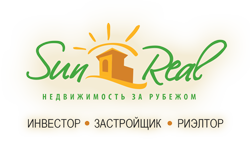 |
Information about Bulgaria |
+359 897 600 600 info@sunreal.co.uk |
|
|
Information about Bulgaria
Bulgaria is an ancient European country whose development has repeatedly intersected the history of the world’s civilisation. Thousands of tourists per year direct their steps to Bulgaria, wishing to lapse into recreation in the resorts in summer, or ski in winter, and in the meantime to get acquainted with the history and traditions of the people of this beautiful country and visit the cultural and historical centre of the Balkan Peninsula. Moreover, Bulgaria also offers opportunities for year-round treatment at the balneological resorts.
State system
Similar articles
21/05/2015
Most popular regions in Bulgaria
GOLDEN SANDS
Golden Sands is a modern resort with more than 50-year history and traditions! It features an incomparable combination of a unique national park, warm and clean sea water and fine golden sand!
Golden Sands was declared a protected territory in 1943. The tourist complex has an area of 17...
09/07/2015
Gallery
Albena resort
Golden Sands resort
Golden Sands resort
Varna
Sunny Beach resort
Nessebar
Pomorie
Sozopol
Lozenets
Sofia
...
09/07/2015
Useful information about Bulgaria
The Republic of Bulgaria is a rather singular, enigmatic and attractive European country with rich history, traditions and numberless opportunities for recreation and holidays. This amazing country conquers the hearts of all who have been here at least once. The tourists return repeatedly to immerse in the sea of vario...
|
|






